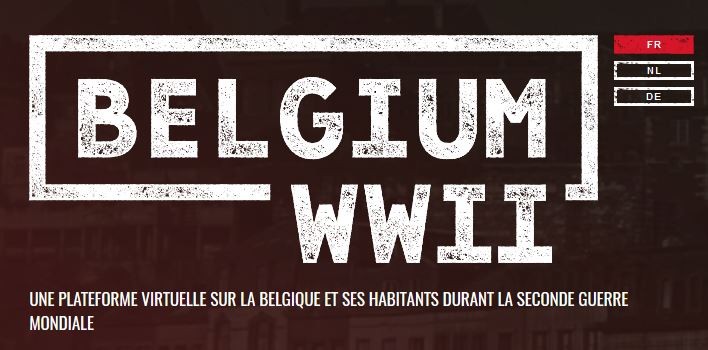Funded by Belspo, this two-year-project was inspired by the observation that Belgium does not have a museum that offers a national perspective on WWII.
Plans developed since the Liberation in 1944 never came to fruition because of the political consequences of divided memories of the war among the Flemish and Walloon populations. The topoi of Wallonia as a place of Resistance and Flanders as a place of collaboration and a victim of the post-1945 “legal purge” have long dominated public discussions, although historical research has deconstructed these topoi at least since the 1990s. Current public debates still demonstrate the need for a reliable source of information on WWII in Belgium based on high-quality research.

The project was led by an Advisory Board composed of Bruno De Wever (UGent), Koen Aerts (UGent), Xavier Rousseaux (UCL), Jonas Campion (UCL/ULille), Sébastien Dubois (General State Archives), Chantal Kesteloot (CegeSoma) and Christoph Brüll (ULiège, now C²DH). Two young historians, Margot Brulard and Tamar Cachet, were responsible for producing the website
For budget reasons, the project authors decided to produce a virtual encyclopaedia with a focus on Collaboration and Justice (during the Occupation and the post-war years). In addition, they decided to present some issues of memory culture related to the two major themes. The aim was to make the encyclopaedia entries accessible for a broader public, by creating short, easily understandable texts with an emphasis on illustration. Filmed interviews with historians and witnesses offer more in-depth information.
As well as the encyclopaedia entries, the website contains a series of “War destinies” – biographies of known and unknown figures who saw their lives change because of the war.
More than 60 authors have contributed to the several hundred encyclopaedia entries. The website is fully bilingual (Dutch-French) and some entries are also available in German, since another aim is to initiate a dialogue (or even a trialogue) between the language communities in Belgium and to show that a past that still affects us today can be approached both seriously and serenely.
Work on the website proved to be a real challenge in terms of public history and digital storytelling for all the participants: project partners, authors and web designers. But the adventure will go on. Other issues like the Resistance and everyday life during the Occupation will hopefully be integrated in the near future.



